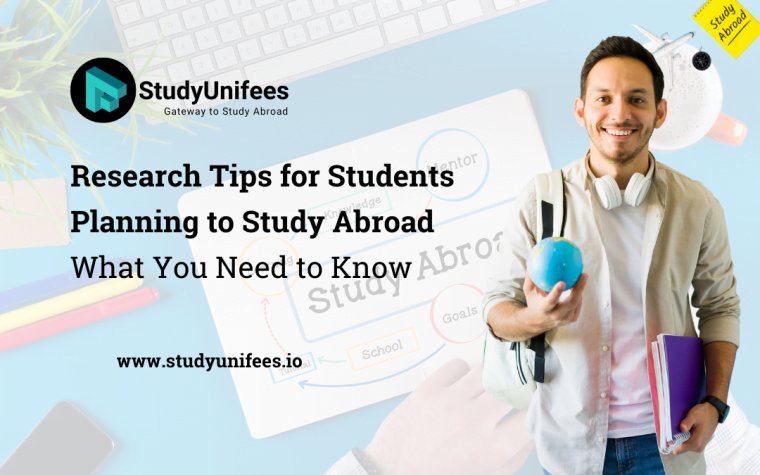Planning to study in Australia is an exciting journey filled with numerous opportunities and experiences. However, it’s crucial to approach this venture thoughtfully to avoid common pitfalls that can hinder your educational journey. In this detailed guide, we’ll explore 15 mistakes to avoid when you decide to study in Australia, examine the quality of Australian higher education, highlight the most popular cities for students, outline the visa process, and provide 10 compelling reasons why Australia is an excellent choice for international students.
15 Mistakes to Avoid When Planning to Study in Australia
- Not Researching Enough: One common mistake is not doing enough research about universities and courses. When you decide to study abroad in Australia, thorough research is key to finding the right fit for your academic and career goals.
- Underestimating Costs: Another mistake is underestimating the cost of living and studying in Australia. Proper financial planning is essential to ensure you have adequate resources to cover tuition, accommodation, and daily expenses.
- Ignoring Scholarship Opportunities: Many international students overlook scholarships and financial aid. When planning to study abroad in Australia, actively seek out scholarship opportunities.
- Neglecting Health Insurance Requirements: Not arranging for health insurance is a critical oversight. Australia requires international students to have Overseas Student Health Cover (OSHC).
- Overlooking Visa Requirements: Misunderstanding or overlooking visa requirements can lead to stressful situations. Familiarize yourself with the visa process early when you plan to study abroad in Australia.
- Packing Inappropriately: Packing too much or too little can cause inconveniences. Understand Australia’s climate and lifestyle to pack suitably.
- Limited Social Interaction: Avoid limiting your social interactions to your own community. Engaging with diverse groups enhances your experience when you study abroad in Australia.
- Not Improving English Skills: Assuming English language skills are sufficient can be a mistake. Continuous improvement is vital, especially in academic contexts.
- Ignoring Academic Support Services: Not utilizing academic support services provided by universities can impact your academic performance. Make the most of these services when you study abroad in Australia.
- Disregarding Cultural Differences: Underestimating the impact of cultural differences can affect your adaptation to life in Australia. Embrace and learn from these differences.
- Overlooking Work Opportunities: Not exploring part-time work opportunities is a missed chance to gain experience and supplement your finances while you study abroad in Australia.
- Not Keeping Track of Immigration Rules: Immigration rules can change. Stay updated to ensure compliance.
- Neglecting Safety Norms: Ignoring safety norms and local laws can lead to trouble. Understand and adhere to them when you study abroad in Australia.
- Failing to Manage Time Effectively: Poor time management can affect both academic and personal life. Develop good time management skills.
- Not Planning Post-Study Steps: Not planning for what comes after your studies, such as work opportunities or further education, is a common oversight.
Quality of the Australian Higher Education System
The Australian higher education system is renowned globally for its quality and innovation. Australian universities consistently rank high in world university rankings, offering a diverse range of courses and a strong emphasis on research and practical skills. The education system is regulated by the Australian government, ensuring high standards are maintained across all institutions. When you study abroad in Australia, you are assured of receiving an education that is recognized and respected worldwide.
Popular Cities and Places for International Students
Australia boasts a number of cities that are popular among international students, including Sydney, Melbourne, Brisbane, Perth, and Adelaide. Each city has its own unique attractions, from Sydney’s iconic Opera House and Harbour Bridge to Melbourne’s vibrant arts scene and cafe culture. The natural beauty of Australia, with its beaches, rainforests, and the Outback, also offers a unique experience for students studying abroad in Australia.
Getting a Visa to Study in Australia
Obtaining a student visa is a crucial step in your journey to study abroad in Australia. The process involves applying for a visa online, providing proof of enrolment in a course, evidence of financial capacity, English language proficiency, and health insurance (OSHC). The visa allows you to stay in Australia for the duration of your course and includes some work rights.
10 Reasons Why Australia is a Great Choice for International Students
- World-Class Universities: Australia is home to some of the world’s leading universities, offering high-quality education.
- Diverse Range of Courses: With a wide range of courses, students can find the field that best suits their interests and career goals.
- Cultural Diversity: Australia’s multicultural society makes it a welcoming destination for students from all over the world.
- Research Opportunities: Australian universities are at the forefront of research, providing students with the opportunity to engage in innovative projects.
- Quality of Life: Australia offers a high standard of living, with a focus on health, education, and well-being.
- Natural Beauty: The country’s diverse landscapes provide an array of recreational activities for students.
- Work Opportunities: International students in Australia have the opportunity to work part-time, gaining valuable experience and supplementing their income.
- Supportive Learning Environment: Australian universities offer a supportive and inclusive learning environment, with a range of student services.
- Global Recognition: Degrees from Australian universities are globally recognized, enhancing career prospects.
- Safety: Australia is known for being a safe and stable country, offering a secure environment for international students.
Conclusion
Choosing to study abroad in Australia is a decision that can lead to an enriching and fulfilling educational experience. By avoiding common mistakes and being well-prepared, you can make the most of what Australian higher education has to offer. With its world-class universities, vibrant cities, and welcoming culture, Australia is not just a place to study; it’s a place to grow, explore, and achieve your potential. So, when planning your academic future, consider all that studying in Australia has to offer and embark on an adventure of a lifetime.









